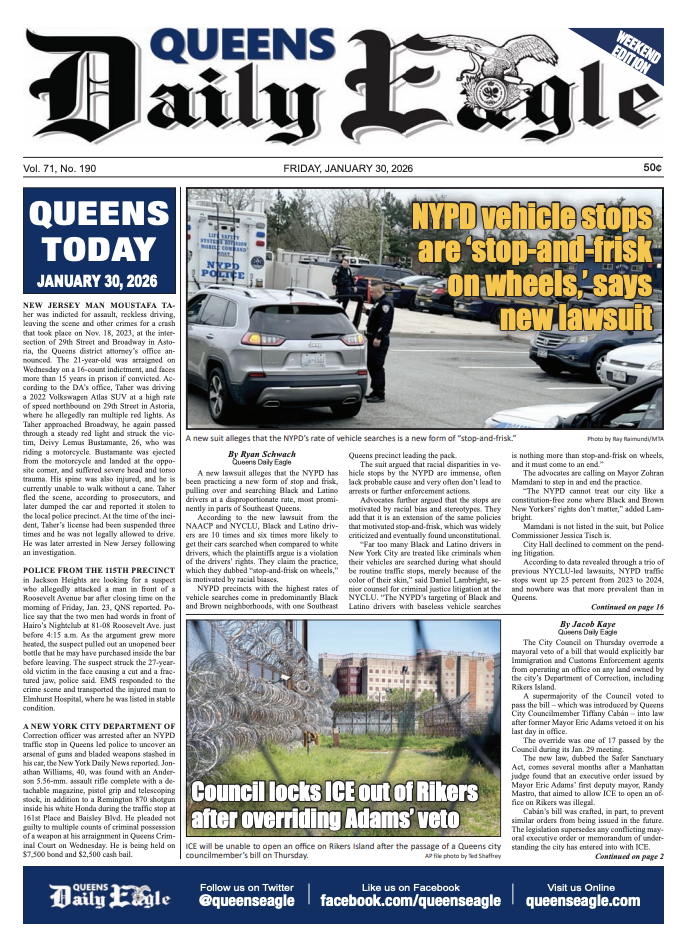NYC nearly doubled senior meal delivery during Queens’ COVID crisis
/Department for the Aging and community partners helped double meal deliveries to seniors during the pandemic. Photo via DFTA
By Rachel Vick
City officials say they have nearly doubled the amount of meals delivered to Queens seniors to combat food insecurity since the COVID-19 crisis began.
Representatives from the city’s Department for the Aging described the food delivery spike during a meeting of the Queens Borough Cabinet Tuesday.
DFTA Associate Commissioner for Social Services & Direct Services Jocelyn Groden told cabinet members that meal deliveries have increased from 24,000 to 44,000.
At the briefing, officials say they have also distributed web-enabled devices to seniors in the borough’s NYCHA housing to mediate social isolation. DFTA and nonprofit providers have also engaged seniors regularly by phone, Groden said in response to a question from Community Board district manager Florence Koulouris.
“As much as we prioritize addressing the digital divide, a lot of our providers and direct staff have been creative about using the phone,” Groden said. “We’re not just limited to these platforms.”
“We’ve seen a lot of some really powerful work happen telephonically, like virtual universities that have really thoughtful content for older adults,” she added.
The Queens Borough Cabinet, chaired by Acting Borough President Sharon Lee, includes members chairpersons and regularly meet to consider presentations from city and state agencies.
Lee said budget cuts pose specific problems for seniors, especially in Queens, which accounts for a third of the city’s older adult population.
“The challenge is greater than in recent memory in terms of serving our elders and making sure they are not left behind or abandoned,” Lee said.
Lee said she was concerned about seniors who live at home in areas at risk of flooding during storm season. She highlighted the experience of older adults who lost power for several days during last month’s Tropical Storm Isaias and had to risk COVID-19 exposure by turning to neighbors for help.
Groden said DFTA works with the Office of Emergency Management to plan ahead for emergencies whenever possible and to ensure seniors have what they need to weather the storm.
Still, she said, the pandemic “has created unique complexities” that need to be addressed.




